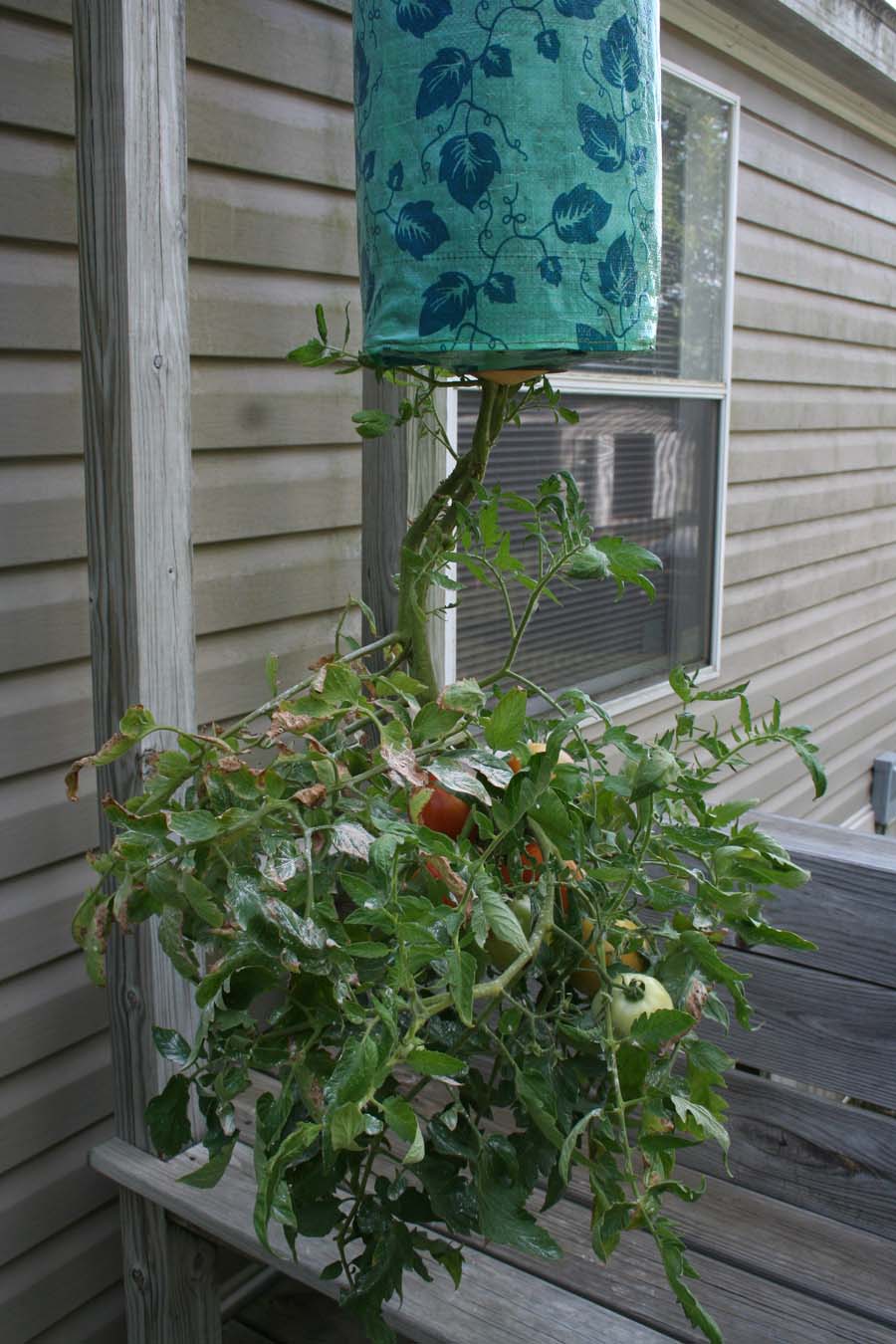Tips For Watering Plants Grown Upside Down


Upside down planting systems are an innovative approach to gardening. These systems, including the well-known Topsy-Turvy planters, are beneficial for people with limited gardening space. What about watering though? Read on to learn how, when, and where to water upside down container plants properly.
Upside Down Watering Issues
While upside down gardening is often used for tomatoes, you can also grow a variety of plants including cucumbers, peppers, and herbs. Upside down gardening offers many benefits too. The planters may be the answer when cutworms or other nasty creatures in the soil are making short work of your plants, when you're losing the battle against weeds, or when your back is tired of bending, stooping, and digging but watering the containers can be a challenge. When watering plants grown upside down, it can be difficult to gauge exactly how much water to use. Watering is especially difficult if the container is hanging so high that you can't see the top. Most gardeners don't want to drag out a stepstool or ladder for daily watering. If you're wondering when to water plants upside down, the answer is every day because containers dry out quickly, especially during hot, dry weather. The problem is that it's easy to overwater, which can result in root rot and other water-borne diseases.
How to Water an Upside Down Plant
When you're shopping for an upside-down planter, look for a planter with a built-in sponge or water reservoir that keeps the roots cool and prevents the soil from drying out quickly. Adding a lightweight water-retention material, such as perlite or vermiculite, to the potting mix also helps absorb and retain moisture. Water-retentive, polymer crystals also improve water retention. Some gardeners aren't sure exactly where to water upside down container plants. The containers are almost always watered from the top so gravity can pull the moisture evenly through the potting mix. The important thing is to water very slowly so the water is evenly absorbed and water trickles through the bottom.
Sign up for the Gardening Know How newsletter today and receive a free copy of our e-book "How to Grow Delicious Tomatoes".

A Credentialed Garden Writer, Mary H. Dyer was with Gardening Know How in the very beginning, publishing articles as early as 2007.